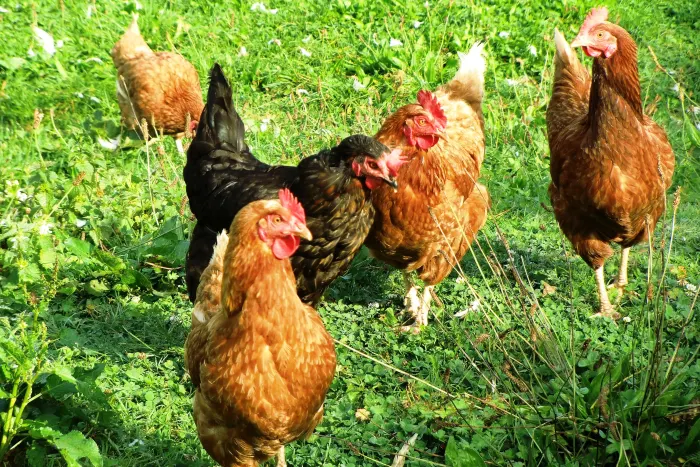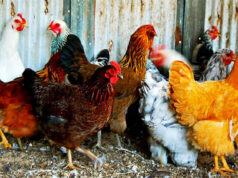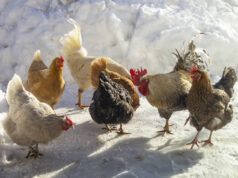Raising chickens can be a delightful and rewarding experience for many people, from backyard gardeners to serious poultry enthusiasts. Understanding how to take care of a chicken properly is essential for ensuring your chickens are healthy, happy, and productive. In this comprehensive guide, we will discuss everything you need to know about chicken care, from choosing the right breed to maintaining their health.

Choosing the Right Chicken Breed
Before diving into the details of how to take care of a chicken, its important to select the right breed. Different breeds have specific needs and characteristics. Some are better egg layers, while others are best for meat production. Researching various breeds will help you find the best fit for your purpose and environment.Chicken Disease
Egg Layers
Popular egg-laying breeds include the Leghorn, Rhode Island Red, and Plymouth Rock. These breeds are known for their excellent egg production and easy-going nature.
Meat Production
If you aim to raise chickens primarily for meat, consider breeds like the Cornish Cross, Jersey Giant, and Bresse. These breeds grow rapidly and produce high-quality meat.

Setting Up a Chicken Coop
A well-designed chicken coop is crucial for keeping your chickens safe and comfortable. Here are the essential elements of a good coop setup.
Size and Space
The coop should be spacious enough to accommodate all your chickens comfortably. Ensure there is at least 4 square feet of space per bird inside the coop and 10 square feet per bird in the outdoor run.
Ventilation
Proper ventilation is vital to prevent the buildup of ammonia and moisture inside the coop. Ensure the coop has adequate windows or vents that can be opened and closed as needed.
Nesting Boxes and Roosts
Nesting boxes should be provided for egg-laying hens, with one nesting box for every 4-5 hens. Provide roosting bars for the chickens to sleep on at night, ensuring they are above the ground and spaced appropriately.

Feeding and Watering
Proper nutrition and hydration are crucial aspects of how to take care of a chicken. Heres what you need to know about feeding and watering your flock.
Feed Types
Chickens require a balanced diet that includes protein, vitamins, and minerals. You can feed them a commercial feed that is formulated for their specific life stage, such as starter feed for chicks, grower feed for pullets, and layer feed for hens.
Grit and Oyster Shell
Chickens use grit to grind up their food since they dont have teeth. Oyster shell provides calcium essential for eggshell production. Both should be offered free-choice.
Water
Always provide fresh, clean water. Chickens can drink up to a pint of water a day, so its important to check and refill their water supply regularly.

Health and Wellness
Keeping your chickens healthy is a critical aspect of how to take care of a chicken. Regular health checks and proper management can prevent many common poultry diseases.
Common Diseases
Some common diseases that affect chickens include Marek’s disease, coccidiosis, and respiratory infections. Being aware of the symptoms and having a plan for treatment can make a tremendous difference.Chicken Symptom
Vaccinations
Consider vaccinating your chickens against common diseases. Many hatcheries offer vaccinated chicks, which can save time and effort.
Parasite Control
Regularly check your chickens for external parasites such as mites and lice. Provide dust baths for them to help control these pests naturally.
Daily Care Routine
A consistent daily care routine is essential for the well-being of your chickens. Heres a simple routine you can follow.
Morning
Let the chickens out of the coop and ensure they have food and water. Do a quick health check to ensure all birds are active and healthy.
Afternoon
Collect eggs and check their food and water levels. Clean any dirty nesting boxes or waterers.
Evening
Ensure all chickens are back in the coop and safe from predators. Check their food and water again and lock the coop securely.
Seasonal Care
Chickens need special care depending on the season. Heres how to adjust their care in summer and winter.
Summer
In hot weather, provide shade and plenty of fresh water. Consider using fans or misters to help them cool down.
Winter
Ensure the coop is well-insulated and free from drafts. Use a heater or heat lamp if necessary, and provide extra bedding for warmth.
Socialization
Chickens are social animals and thrive in groups. Spend time interacting with your flock to keep them friendly and tame.
Introducing New Chickens
If youre adding new chickens to your flock, do so gradually. Keep new birds in a separate area for a few weeks before introducing them to the established flock.
Handling
Regularly handle your chickens to keep them accustomed to human interaction. This makes it easier to check for health issues and perform routine care.
Record Keeping
Maintaining records of your chickens’ health, egg production, and other important data can help you manage your flock more effectively.
Health Records
Keep track of any illnesses, treatments, and vaccinations. This information is valuable for managing and preventing future health issues.
Production Records
Record the number of eggs laid daily, noting any changes or trends. This can help you monitor the health and productivity of your chickens.
Additional Resources
There are many excellent resources available for chicken enthusiasts. Consult books, online forums, and local poultry clubs for more information and support.Poultry Guide
Q1: How often should I clean the chicken coop?
A1: Its recommended to clean the chicken coop thoroughly at least once a week. Daily spot cleaning of soiled bedding and removal of droppings can help maintain a sanitary environment.
Q2: Can chickens live alone?
A2: Chickens are social animals and thrive in groups. Its best to keep at least three chickens together to ensure they are happy and healthy.
Q3: What should I do if my chicken is sick?
A3: If you notice signs of illness in a chicken, isolate the bird from the flock and consult a veterinarian. Keeping a basic first aid kit and being aware of common chicken illnesses can help you provide quick care.
As an Amazon Associate, I earn from qualifying purchases.










